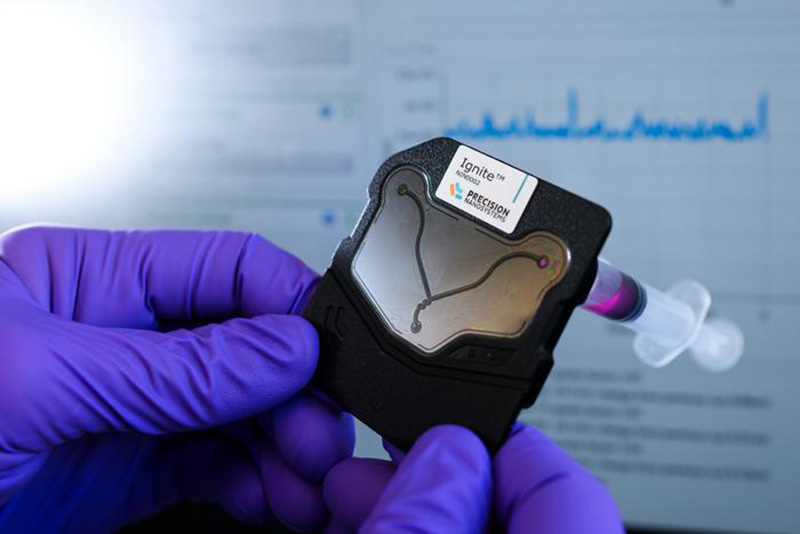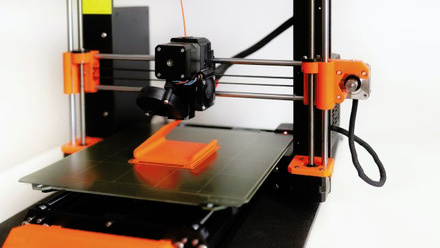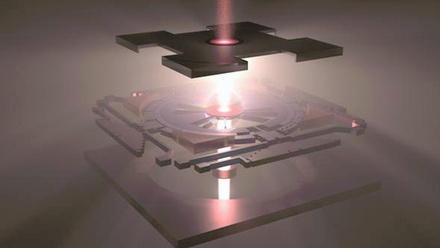Mass-manufacturing nanoparticles for drug delivery
MIT engineers are manufacturing nanoparticles to deliver cancer drugs to tumors.

This microfluidic device can be used to assemble the nanoparticles rapidly and in large quantities
© Gretchen ErtlThe team from Massachusetts Institute of Technology, USA, have used a microfluidic mixing device to sequentially add new polymer layers to nanoparticles as they flow through a microchannel in the device.
For each layer, the researchers can calculate exactly how much polymer is needed, which eliminates the need to purify the particles after each addition.
They say this also negates manually mixing, which streamlines manufacturing and integrates good manufacturing practice (GMP).
The microfluidic device is already used for GMP manufacturing of other nanoparticles, including mRNA vaccines.
Using this approach the researchers can generate 15mg of nanoparticles (enough for about 50 doses) in just a few minutes, while the original technique would take about an hour to create the same amount.
To demonstrate the production technique, the team created nanoparticles coated with a cytokine called interleukin-12 (IL-12).
The lab had previously shown IL-12 delivered by layer-by-layer nanoparticles can activate key immune cells and slow ovarian tumor growth in mice.
The researchers have found that IL-12-loaded particles manufactured using the new technique show similar performance as the original layer-by-layer nanoparticles.
And, not only do these nanoparticles bind to cancer tissue, but they reportedly do not enter the cancer cells. This allows the nanoparticles to serve as markers on the cancer cells that activate the immune system locally in the tumor.







